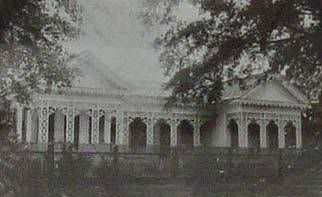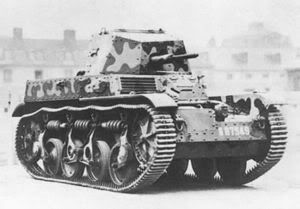Chapter II: Part XV
Chapter II: The Gambit of the West
Part XV
April 9, 1936
The men of Johann Mahler’s company had been dug in since morning along a long wheat field south of Herseaux in northwestern Belgium. Though the French border was just over 500 meters away, they had not yet seen any sign of enemy soldiers.
In the distance, the low rumble of heavy artillery served as a reminder that a war was in fact in progress, but there was otherwise a near-total lack of information about the progress of events on a larger scale. Hauptmann Kahrs had been summoned early that morning to divisional headquarters at Avelgem and not seen since. Command of the eighty-eight men dug in behind the hedgerow had then devolved upon Leutnant Blauer who had himself been summoned to regimental headquarters an hour later. Thus it had fallen to Leutnant Zimmerscheid to defend a 200 meter stretch of field against any onslaught that might come -- without orders, intelligence or communication from above.
Lurid rumors circulated wildly among the men. Many were certain that the French army had deported thousands of German women for the purpose of “bolstering the morale” of the soldiers behind the front. Quite a few seemed to have reliable friends who were in a position to know that a prominent general had betrayed Germany, leading to the rapid French advance. A few believed that northwestern Belgium had already been cut off in a massive encirclement.
The most reliable piece of news to come in all day was from a private who had overheard officers listening to a German radio broadcast which made reference, he said, to the “Imminent recapture of Freiburg”. The exact implications of this were hotly debated by the men of the company, but most agreed that the city had probably fallen to the French.
It was a warm spring day, and the company had passed the hours in quiet conversation on one side of the long hedgerow at the edge of the field.
The field defended by Johann Mahler’s company, seen from the southwest.
“If you ask me,” said Mahler’s fellow corporal Eddi Althaus to no one in particular, “there’s Bolshevism behind all this. You see, France has been turning further and further against Germany ever since it signed a mutual defense pact with the Soviet Union. Mark my words, Stalin will attack Germany from the rear before summer is here.”
Mahler reclined in the shade beneath hedge. “I don’t think so, Eddi. England is the larger threat now, at least. We’ll be lucky if they don’t send another expeditionary force to France before all this is over.”
Althaus turned to face his friend. “What you fail to realize, though, Johann -- is that too much of England supports Germany for them to actually invade. I am quite sure that they have declared war as nothing but a formality.” He stuck a hand into the breast of his tunic and affected a strong British accent. “Satisfaction of honor, and such.”
“You’re funny, Eddi, but I think I am right.”
Several of the men nearby laughed.
“A thousand pardons! Of course you’re right, Sigmund.” Althaus gave a friendly tug on the ribbon looped through Mahler’s third tunic button.
He had been awarded the Iron Cross 3rd Class for his actions at Riemst, and at Althaus’ instigation, the rest of the company had never ceased to tease him about it.
“Our very own hero, Johann.” Althaus clucked loudly. “I always thought heroes were a little bit more
muscular, but it seems the Wehrmacht has fallen on hard times.”
“Shut up, Eddi.”
“By your command, Gefreiter Sigmund.”
The drone of an engine overhead drew all eyes upward. A lone biplane displaying the blue-within-white-within-red roundels of the Armée de l'Air was flying slowly over the countryside.
Leutnant Zimmerscheid, who had been cleaning his revolver in the shade of a tree behind the hedgerow, sprang to his feet. “Up men, up! Less talking. Each man should be alert and ready to defend this position. Yes?”
There were affirmative shouts from the men.
Mahler rose to his feet and peered over the hedge across the wheat field. Time passed, and hushed conversation resumed. Mahler’s mind began to wander to his home, and to worries of the air raids that were said to be striking the cities of the Rhineland. The sound of distant hoof beats drew his attention to the far side of the field just in time to see a man on a brown charger vault his horse over the low hedge that marked the field’s boundary. He brought the horse to a stop and seemed to scan the ground leading to the road to Herseaux.
Althaus already had a pair of field binoculars pressed to his eyes. They were of an expensive design usually reserved for officers, but so were a number of items the incorrigible corporal carried. “Yes, he’s wearing the kepi hat of a French
capitaine, and from the dark blue color he’s probably from the
chasseurs. He’s -- he’s turning now. Excellent equestrian form, probably a Saint-Cyr gentleman-soldier. It looks like he is missing a uniform button, so he was probably called up recently -- even so, his wife should have fixed it, so he’s probably a bachelor, or maybe he’s been divorced several times, as you can see from the --”
“Eddi!” Mahler snatched the binoculars for himself. “Enough with the commentary… Was any of that true anyway?”
“Knowing me, all of it was true.”
Grumbling, Mahler edged up over the hedge and peered through the binoculars. The man seemed to be an officer, and he was willing to believe Althaus insofar as the man’s captaincy. “Yes, he is a captain. What should we do?”
Unterfeldwebel Becker scurried up at a crouch. “Give me the glasses.”
Mahler handed his squad leader the binoculars. Becker poked his head above the hedge and was silent for awhile. At last his voice came in a low whisper. “He seems not to see us, and he is crossing the field toward us. Gottsch! Come up here with your rifle ready.”
The squad’s best marksman soon presented himself. “Just tell me when to shoot, Herr Unterfeldwebel.”
“Unterfedwebel, he looks to be alone,” Mahler whispered, “perhaps we should try to take him prisoner.”
Becker glanced away from the binoculars and frowned. “Very well, but if he doesn’t stop when I demand his surrender, shoot him immediately.” He looked through the binoculars again and held up a warning hand. “Not yet, wait for him to come closer.”
A minute passed. Mahler and the other men pressed against the near side of the hedge trying to imagine how close the man on horseback was getting. Just as Mahler’s nerves were beginning to dull, Becker burst over the hedge, shouting. “
Arrêt! Vous devez vous rendre, ehm, rapidement!”
Mahler and several dozen of his comrades poked their rifles over the hedge and aimed at the officer, now just thirty meters away.
The man brought his horse to a stop. He was clearly quite surprised.
Becker brandished the binoculars at him fiercely. “
Démonter! Démonter de votre cheval, s'il vous plaît, capitaine!”
The Frenchman dismounted and held his gloved hands in the air.
“
Coucher vouz, s'il vous plaît!” Becker gestured for the man to lie down. Hesitatingly, he complied.
“Gottsch, keep him in your sights. Kayser, get his horse and lead it back here.”
The Thuringian private approached the nervous horse slowly and patted its head reassuringly. At last he took its reins and led the animal to the other side of the hedge, where he tied it to a small tree.
Meanwhile, Unterfeldwebel Becker ordered two soldiers to seize the officer and bind his hands with belts. The Frenchman again complied docilely. He was pulled to his feet and led behind the hedge, where Leutnant Zimmerscheid was waiting for him.
“What is the meaning of this? Untie him at once!”
The notoriously starchy lieutenant winced as Becker drew a long knife and used it to free the jammed belt clasps before untying them and slipping them off the Frenchman’s wrists.
“My apologies,
capitaine,” the lieutenant said.
“It is not troublesome.” The man spoke good German.
“Please sit.” Zimmerscheid gestured to a nearby tree stump. “What is your name, rank and unit?”
“My name is Jerôme Canac. I am a captain in the 3ème Bataillon de Chasseurs.”
Still looking at Canac, Zimmerscheid gestured for the company sergeant to begin taking notes. “And your division?”
“I -- the 3ème Bataillon de Chasseurs is attached to the 2ème Division Cuirassée de Réserve.”
Mahler heard Zimmerscheid swear under his breath. “That is an armored division, correct?”
“That is correct, Hauptmann…”
“Leutnant,” he corrected, somewhat ruefully, “Leutnant Paul Zimmerscheid.”
Canac nodded.
“
Capitaine Canac, what were you doing on German soil?”
“I am not able to say. I may say though that we are at war with you, and therefore you may presume that I was involved in a military operation against you.”
Zimmerscheid was visibly afraid. “Müller! Take Hauptfeldwebel Stumpff’s report, and go as quickly as you can to find higher headquarters.”
Soon after the runner was out of sight, Canac called for Zimmerscheid to speak with him privately. Of course, every single man within earshot craned his neck and stilled his breathing to overhear. “Do you hear that, Leutnant Zimmerscheid? Those are tanks coming this way that can wipe out your men very easily. I will accept your surrender now, and we can thus avert all bloodshed today.”
Leutnant Zimmerscheid’s façade of composure was cracking altogether. He cast about desperately for an answer, but was unused to being without higher officers to be answerable to. “I -- do not know.”
“I am sure the war will be settled soon, Leutnant Zimmerscheid. It is no use to send any of these men to their deaths now.”
“No,” he said, swallowing. “Yet I have been ordered to hold this position and that is what I shall do.”
Mahler and the others were now again poking their rifles over the hedgerow. Engines could be heard ahead, but no tanks were visible. At last, there came the sound of snapping vegetation and a French tank rolled over the hedge, followed by two more like it.
“Those are AMR 35s!” called Althaus.
AMR 35s were employed to great effect at the start of the French campaign.
Infantrymen were starting to cross into the field now.
Gottsch began firing his Kar98k, soon joined by Kayser and Adam. Some of the infantrymen fell, but the French were now aware of the German position and began returning fire. The lead AMR 35 traversed its turret along the hedgerow, firing its heavy machine gun.
The men took cover quickly as a shower of leaves and earth sprayed into the air.
“Back! Back!” Zimmerscheid was waving his revolver wildly. “Retreat!”
Some of the men hesitated.
“Into the road! Now! That was an order!”
Mahler and most of the men crawled down the embankment to the farmer’s path behind the wheat field. He turned to see the French captain standing over Gottsch’s bleeding body, frantically waving his handkerchief at the tank.
Three of the others fired a few futile shots at the tank from over the hedgerow and ran down to the path to join the rest of the fleeing company.
They did not stop running until they reached Herseaux.





